The Reiki Digest for April 25, 2007: Breaking the breaking news habit
Having spent decades chasing the news as a reporter, I still tend to keep up with current events a bit more than is really necessary. A few years ago, I ran across the idea of taking a "news fast" now and then, but I admit I haven't ever tried it for more than a day or so. My effort to break the news habit has turned out to be more of a news diet than a news fast. But last week, the news was so bad that I just had to turn away for awhile. There was nothing my attention could do about the heartbreaking headlines, so I focused on more positive, or at least more neutral matters, and went on with my day.
Learning to let go of the news to the extent that I have so far has turned out to be a lot like practicing the Reiki Precepts. I'm not talking about just repeating the precepts, although that's a good way to keep them in mind. I'm talking about trying to live by them as much as possible.
For today only,
Do not anger
Do not worry
Be humble
Be honest in your work
Be considerate to yourself and others
By letting go as much as possible of anger and fear (another word for worry) as I try to follow the precepts, I have been able to reclaim a lot of energy that used to get spun off pointlessly in negative emotions. Being human, of course, I do still get angry sometimes, and I still worry, but not as much as I once did. The precepts are something to strive toward, not rigid rules bound to be broken. When I do experience those feelings, I find that if I remember the precepts, and my experience with them so far, I can acknowledge that I'm feeling anger and/or worry (another word for fear) and then let it go.
One thing that helps with that is a Japanese phrase I learned more than 25 years ago from a hibakusha, a survivor of the Hiroshima bombing. Unlike Reiki founder Mikao Usui, The Rev. Kiyoshi Tanimoto was a Christian minister, and after the bombing he spent the rest of his life helping other survivors and working for world peace in hopes that nuclear weapons would never be used again. When I interviewed him in the early 1980s, I told him I felt a bit guilty because, having been born in the extraordinary town created to make the fuel for the Hiroshima bomb, I had indirectly benefited from it. He told me that in Japan, there was a phrase that was almost like a philosophy in itself: shikata ga nai. He said it means "it couldn't be helped" or "unfortunate thing happened; we must go on." "Shikata ga nai," he said, was how he felt about the bomb. Since that day, long before I ever heard of Reiki, I have thought of that phrase at least once a day. I figure if Rev. Tanimoto could say that about the Hiroshima bomb, was there anything so bad that I couldn't say "shikata ga nai" and move on? So far, there hasn't been.
So last week, if I found myself inclined to turn on the television, I put it on a nature program, classic comedy or an old movie instead of the news. I listened to music. I took walks outside in the sun (once the torrential rains stopped, that is), or did a little extra Reiki self-care.
But when I went to my office to treat my first Reiki client of the week, the news walked right in with him. This is a longstanding client, facing a relentless form of cancer that is usually lethal within months of diagnosis. I am only one member of the team of practitioners he put together to attack the disease from every angle. The oncologists go after the cancer with cutting-edge experimental treatments, I give him Reiki now and then to reduce his stress and help him deal with the side effects. (Please note: Reiki is not a substitute for medical care!) My client had some good news -- the experimental drugs are working and his tumors are shrinking -- but he had little time to dwell on it. For the first time, he brought issues other than his illness to address in our session: one of his nephews was a student at Virginia Tech, the scene of last week's awful news, and another is being sent to Iraq, the scene of awful news every week for the past few years. For all my efforts to ignore the news, there it all was, right there on my treatment table.
This time there was something I could do about the news: the same thing I'd done all the other times I'd seen this client, the same thing I do for other clients who come in with other problems. I gave him Reiki, which helped him shift his energy to a more positive place, at least for awhile.
As a natural health practitioner, I do still work with people and their stories, but in a different way now. I don't just give them my attention while they tell me their stories and then spit their tales back out for the late edition. I still listen, but now my job is to help them rewrite their stories and take control of their lives. And I find it far more rewarding than seeing my byline on the front page.
Having applied some Reiki to the news, let's apply some journalism to the world of Reiki. It's time for our regular Reiki Roundup.
We begin with a good news, bad news situation: the good news is that Reiki made headlines in the respected journal Scientific American this week; the bad news is the headline reads: "Reiki shows no effect on neurologic diabetes pain."
A study of 207 patients with diabetic neuropathy divided them into three groups: one group received regular Reiki sessions, another group received "mock" Reiki from actors, and a third group received "usual care." At first, both the Reiki and "mock" Reiki groups showed improvement, reporting less pain and walking 12 percent farther after their treatments, but by the end of the study (12 weeks) all groups were the same. The same article also says "medical therapy is helpful in roughly one third of patients with this condition." Could that third be the same third that was helped by "usual care" in this study? The source of the Scientific American article was a study published in the journal Diabetes Care, which calls what the actors did "mimic Reiki" instead of "mock." It would be interesting to know what kind of acting the actors were doing -- were they trying to think and feel what a Reiki practitioner might think and feel during a session, were they mimicking movements and facial expressions? What was their intention, in other words? Was it, "I want to help this person feel better" or "I want to make people think I'm doing Reiki even though I'm not"? As much as anything, this study illustrates the limitations of studying Reiki in this manner.
Under the startling (and misleading) headline "Massages can cause 'cancer'" in Kuwait's Arab Times, we find nothing to back up that warning except what seems to be an advertorial quoting a "Reiki energy therapy" expert recommending natural aromatherapy oils instead of synthetic chemicals.
Now we turn the spotlight in the direction of this week's Celeb-Reiki, our very first upside-down honoree: U.S. television personality Rosie O'Donnell, who "hangs upside down to treat depression" according to an article on the benefits and risks of inversion. What's that got to do with Reiki? Nothing, except that the featured interviewee is the proprietor of a place called "Harmony Yoga Reiki Center." So for those who might wonder, Reiki has absolutely nothing to do with turning yourself upside down. Ms. O'Donnell reportedly demonstrated her upside-down therapy on the TV show "The View" shortly before she and the network announced she was leaving the show.











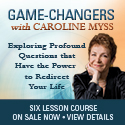
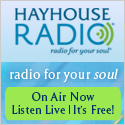





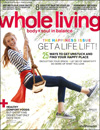


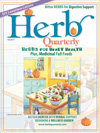
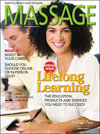
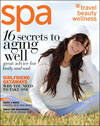
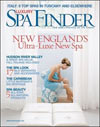
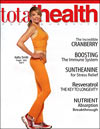






0 Comments:
Post a Comment
<< Home